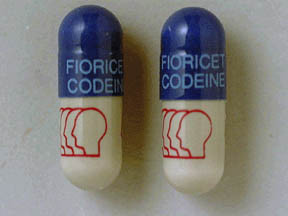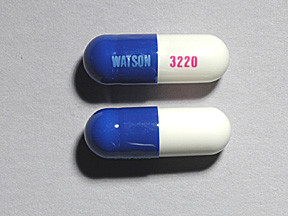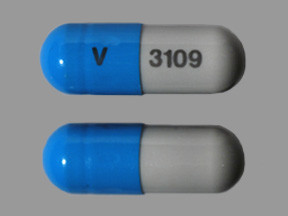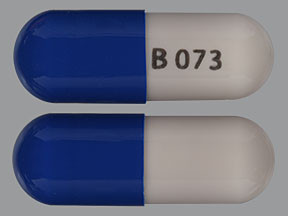CODEINE/BUTALBITAL/ACETAMINOPHEN/CAFFEINE - ORAL
PHONETIC PRONUNCIATION: (KOE-deen/bue-TAL-bi-tal/a-SEET-a-MIN-oh-fen/KAF-een)
COMMON BRAND NAME(S): Fioricet with Codeine, Phrenilin with Codeine
GENERIC NAME(S): butalbital/acetaminophen/caffeine/codeine phosphate
Uses
USES: See also Warning section. This combination medication is used to treat tension headaches. Codeine is an opioid (narcotic) pain reliever that acts on certain centers in the brain to give you pain relief. Acetaminophen helps to decrease the pain from the headache. Caffeine helps increase the effects of acetaminophen. Butalbital is a sedative which helps to decrease anxiety and cause sleepiness and relaxation.
How to use CODEINE/BUTALBITAL/ACETAMINOPHEN/CAFFEINE - ORAL
HOW TO USE: See also Warning section. Read the Medication Guide provided by your pharmacist before you start taking this product and each time you get a refill. If you have any questions, ask your doctor or pharmacist. Take this medication by mouth with or without food, usually every 4 hours as needed or as directed by your doctor. Do not take more than 6 capsules in a 24-hour period. If you have nausea, you may take this medication with food. Ask your doctor or pharmacist about other ways to decrease nausea (such as lying down for 1-2 hours with as little head movement as possible). The dosage is based on your medical condition, age, and response to therapy. This medication works best if it is used as the first signs of a headache occur. If you wait until the headache has worsened, the medication may not work as well. Do not increase your dose or use this drug more often or for longer than prescribed, because your risk of side effects may increase. Properly stop the medication when so directed. This medication may cause withdrawal reactions, especially if it has been used regularly for a long time or in high doses. In such cases, withdrawal symptoms (such as runny nose, watery eyes, mental/mood changes, seizures) may occur if you suddenly stop using this medication. To prevent withdrawal reactions, your doctor may reduce your dose gradually. Consult your doctor or pharmacist for more details, and report any withdrawal reactions right away. Though it helps many people, this medication may sometimes cause addiction. This risk may be higher if you have a substance use disorder (such as overuse of or addiction to drugs/alcohol). Take this medication exactly as prescribed to lower the risk of addiction. Ask your doctor or pharmacist for more details. Inform your doctor if you notice increased use of this medication, a worsening of headaches, an increase in the number of headaches, the medication not working as well, or use of this medication for more than 2 headache episodes a week. Do not take more than recommended. Your doctor may need to change your medication and/or add a separate medication to prevent the headaches.
Side Effects
Precautions
Interactions
Overdose
Images

- color
- gray
- shape
- oblong
- imprint
- FIORICET CODEINE, logo

- color
- white
- shape
- oblong
- imprint
- WATSON, 3220

- color
- light blue
- shape
- oblong
- imprint
- V, 3109

- color
- dark blue
- shape
- oblong
- imprint
- B 073

- color
- white
- shape
- oblong
- imprint
- WATSON, 3220

- color
- white
- shape
- oblong
- imprint
- WATSON, 3220

- color
- white
- shape
- oblong
- imprint
- WATSON, 3220

- color
- white
- shape
- oblong
- imprint
- WATSON, 3220
Reviews
Faq for CODEINE/BUTALBITAL/ACETAMINOPHEN/CAFFEINE - ORAL
Codeine/Butalbital/Acetaminophen/Caffeine is a combination medication that is used to relieve tension headaches. It contains four active ingredients: codeine, a narcotic pain reliever; butalbital, a barbiturate sedative; acetaminophen, a non-opioid pain reliever; and caffeine, a stimulant.
Codeine helps to relieve pain by binding to certain opioid receptors in the brain and blocking the transmission of pain signals. Butalbital works by relaxing muscle contractions that contribute to tension headaches. Acetaminophen helps to reduce fever and alleviate pain, while caffeine stimulates the central nervous system and enhances the effectiveness of other pain relievers.
This medication is primarily used to treat tension headaches, which are characterized by a dull, aching pain and tightness in the head and neck region. It is not intended for long-term treatment of migraines or other types of headaches.
Codeine/Butalbital/Acetaminophen/Caffeine should not be used by individuals with a history of certain conditions, such as liver disease, kidney disease, asthma, or breathing problems. It is important to disclose all current medications and medical conditions to your doctor before starting this medication.
Common side effects may include drowsiness, dizziness, lightheadedness, nausea, vomiting, constipation, and stomach upset. It is important to follow the prescribed dosage and inform your doctor if any side effects become severe or persistent.
This medication should be taken as directed by your healthcare provider. Typically, it is taken every four hours as needed for pain relief. It may be accompanied by food to minimize stomach upset. Do not exceed the recommended dosage or take it for a prolonged time without consulting your doctor.
Codeine, one of the active ingredients in this medication, is an opioid and can be habit-forming if misused or taken in high doses for a prolonged period. It is important to follow the prescribed dosage and use the medication only as directed by your doctor.
Warning
WARNING: Codeine has a risk for abuse and addiction, which can lead to overdose and death. Codeine may also cause severe, possibly fatal, breathing problems. To lower your risk, your doctor should have you take the smallest dose of codeine that works, and take it for the shortest possible time. See also How to Use section for more information about addiction. The risk for severe breathing problems is higher when you start this medication and after a dose increase, or if you take the wrong dose/strength. Taking this medication with alcohol or other drugs that can cause drowsiness or breathing problems may cause very serious side effects, including death. Also, other medications can affect the removal of codeine from your body, which may affect how codeine works. Be sure you know how to take this medication and what other drugs you should avoid taking with it. See also Drug Interactions section. Get medical help right away if any of these very serious side effects occur: slow/shallow breathing, unusual lightheadedness, severe drowsiness/dizziness, difficulty waking up. Keep this medicine in a safe place to prevent theft, misuse, or abuse. If someone accidentally swallows this medication, get medical help right away. One ingredient in this product is acetaminophen. Taking too much acetaminophen may cause serious (possibly fatal) liver disease. Adults should not take more than 4000 milligrams (4 grams) of acetaminophen a day. People with liver problems and children should take less acetaminophen. Ask your doctor or pharmacist how much acetaminophen is safe to take. Do not use with any other drug containing acetaminophen without asking your doctor or pharmacist first. Acetaminophen is in many nonprescription and prescription medications (such as pain/fever drugs or cough-and-cold products). Check the labels on all your medicines to see if they contain acetaminophen, and ask your pharmacist if you are unsure. Get medical help right away if you take too much acetaminophen (overdose), even if you feel well. Overdose symptoms may include nausea, vomiting, loss of appetite, sweating, stomach/abdominal pain, extreme tiredness, yellowing eyes/skin, and dark urine. Daily alcohol use, especially when combined with acetaminophen, may damage your liver. Avoid alcohol. Before using this medication, women of childbearing age should talk with their doctor(s) about the risks and benefits. Tell your doctor if you are pregnant or if you plan to become pregnant. During pregnancy, this medication should be used only when clearly needed. It may slightly increase the risk of birth defects if used during the first two months of pregnancy. Also, using it for a long time or in high doses near the expected delivery date may harm the unborn baby. To lessen the risk, take the smallest effective dose for the shortest possible time. Babies born to mothers who use this drug for a long time may develop severe (possibly fatal) withdrawal symptoms. Tell the doctor right away if you notice any symptoms in your newborn baby such as crying that doesn't stop, slow/shallow breathing, irritability, shaking, vomiting, diarrhea, poor feeding, or difficulty gaining weight. Children younger than 12 years should not use products that contain codeine. Children between 12 and 18 years old should not use codeine after certain surgeries (including tonsil/adenoid removal). Also, codeine use is not recommended for children between 12 and 18 years old who are obese or have breathing problems. Some children are more sensitive to codeine and have had very serious (rarely fatal) breathing problems such as slow/shallow breathing (see also Side Effects section). Talk with your doctor or pharmacist about the risks and benefits of this medication.
Disclaimer
IMPORTANT: HOW TO USE THIS INFORMATION: This is a summary and does NOT have all possible information about this product. This information does not assure that this product is safe, effective, or appropriate for you. This information is not individual medical advice and does not substitute for the advice of your health care professional. Always ask your health care professional for complete information about this product and your specific health needs.
No Reviews Yet